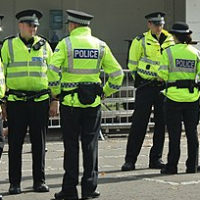
What Is Police Abuse of Power?
The function of the police is to maintain law and order within society and keep members of the public safe. Sometimes, however, police officers can abuse their positions of power and break the law. You could be eligible for compensation if you have been subject to police misconduct.
Examples of Police Abuse of Power
False Arrest
Also known as false imprisonment, false arrest refers to when a person is arrested without a lawful cause. The length of time you were detained does not affect your claim; you can claim for false arrest even if you were held in custody only briefly. Compensation will vary depending on how long you were detained in police custody.
Continued Detention
When a detainee arrives at the police station, the Custody Officer’s job is to determine if there is sufficient evidence to justify a charge. If that is the case, the detainee can be kept in for such period as is necessary. If there is a lack of evidence, then the suspect’s further detention should only be authorised if:
-
there are reasonable grounds for believing that detention is necessary to secure or preserve evidence relating to an offence for which the suspect is under arrest, or
-
to obtain such evidence by questioning.
If there is no evidence to support the detainee’s detention, they should be released. If you are forced to stay without reasonable grounds for arrest, you could be eligible for compensation.
Excessive Force
Police should only use a necessary amount of force to prevent an incident from occurring, to stop a suspect/perpetrator or to protect themselves. However, there have been cases of police using excessive force, for example, an officer striking a handcuffed citizen or hitting a suspect who is not resisting.
When members of the police body demonstrate excessive force, they are abusing their position of power. If you are subject to this treatment, you can claim compensation.
How To Claim Police Abuse of Power
If you wish to claim against the police, you must first make a complaint to the IOPC (Independent Office for Police Conduct) within a year of the incident occurring. After that, it is crucial to understand that there are time limits in place for making a claim. Some of these include:
-
You have six years to claim false imprisonment or assault (from the date of detainment or the date the assault occurred)
However, it is also important to note that:
-
You only have three years if claiming personal injury against the police
If you have been assaulted by the police, you should gather relevant evidence as soon as possible. You must see a doctor and take photographs of any injuries you have sustained. Taking the time to do these steps will help build a strong case for your claim.
In any case, it is best to speak to an experienced solicitor who can best advise you on the claim process.
Get In Touch
At TDP Solicitors, we are a team of highly experienced professionals. We understand the claim process more than anyone, so if you believe you have a case, get in touch to discuss the next steps at 0151 242 5111.
To read our blogs, please click here.
